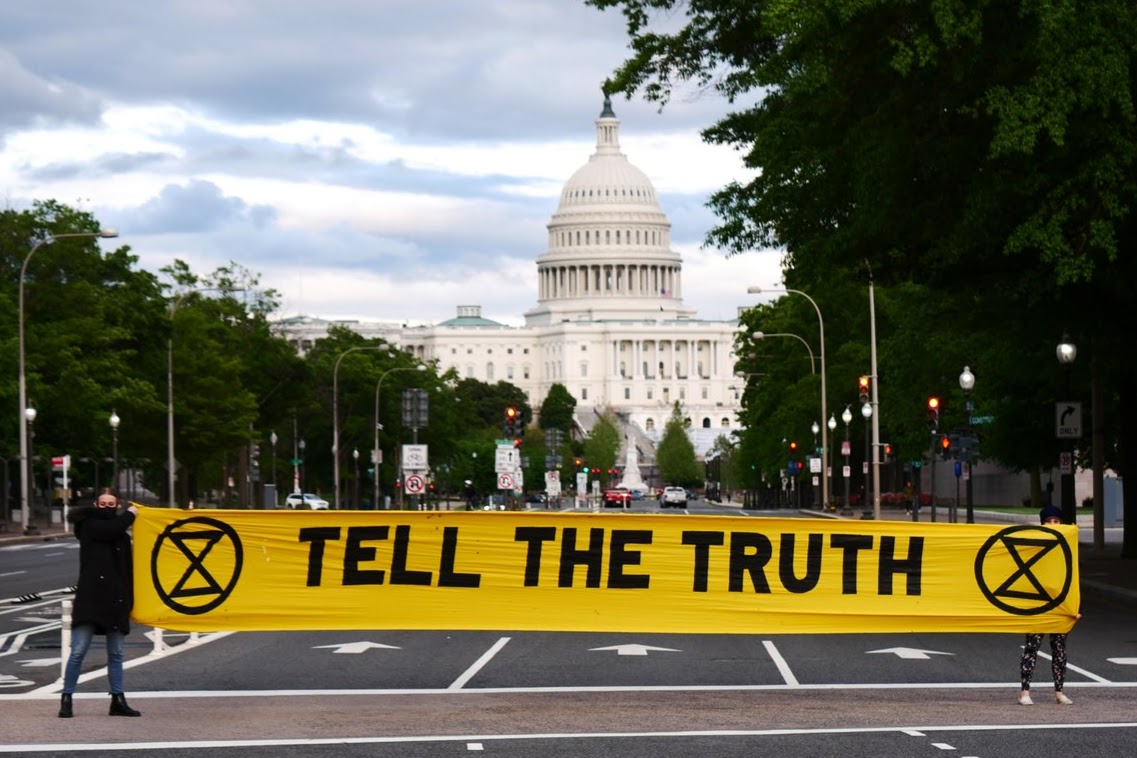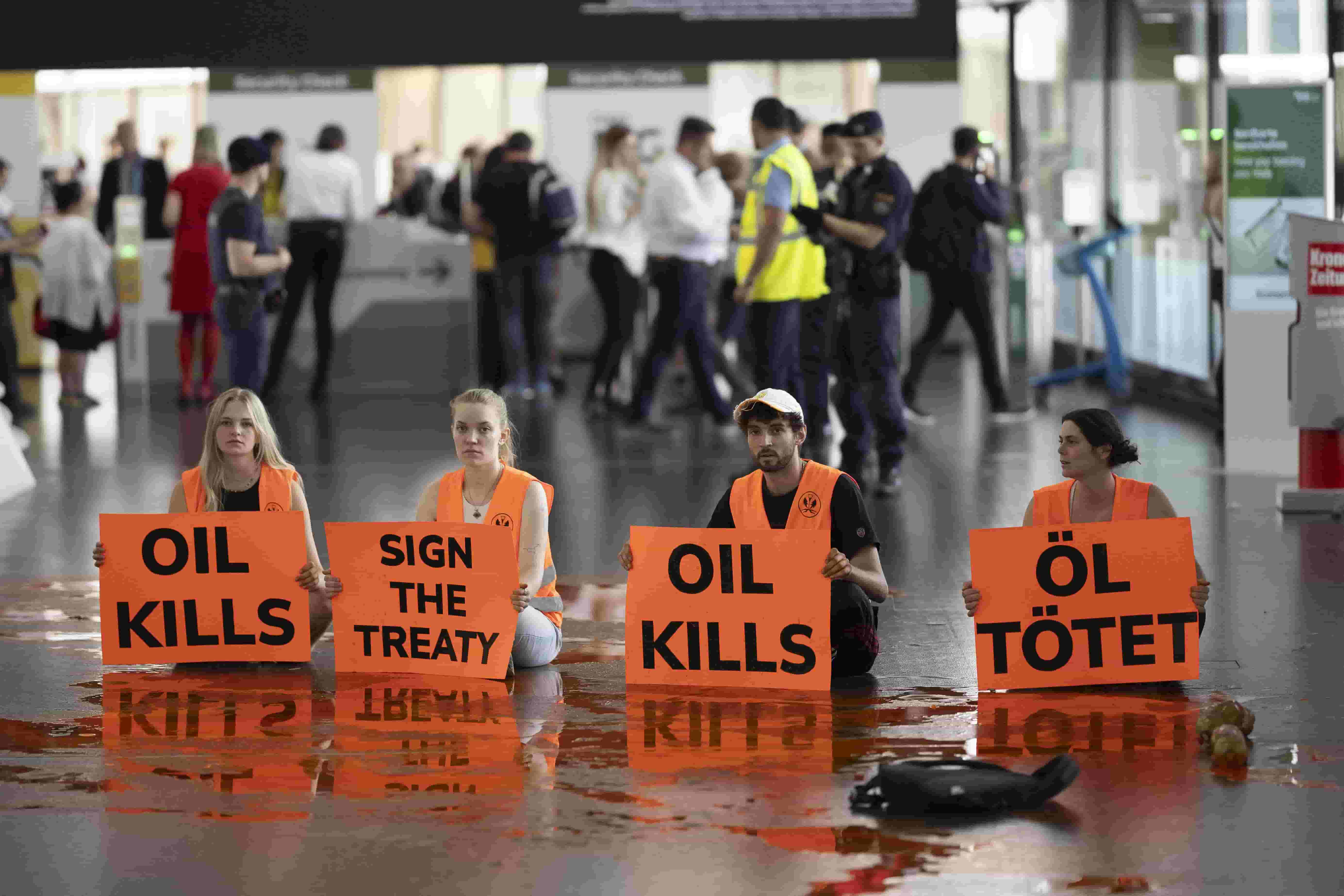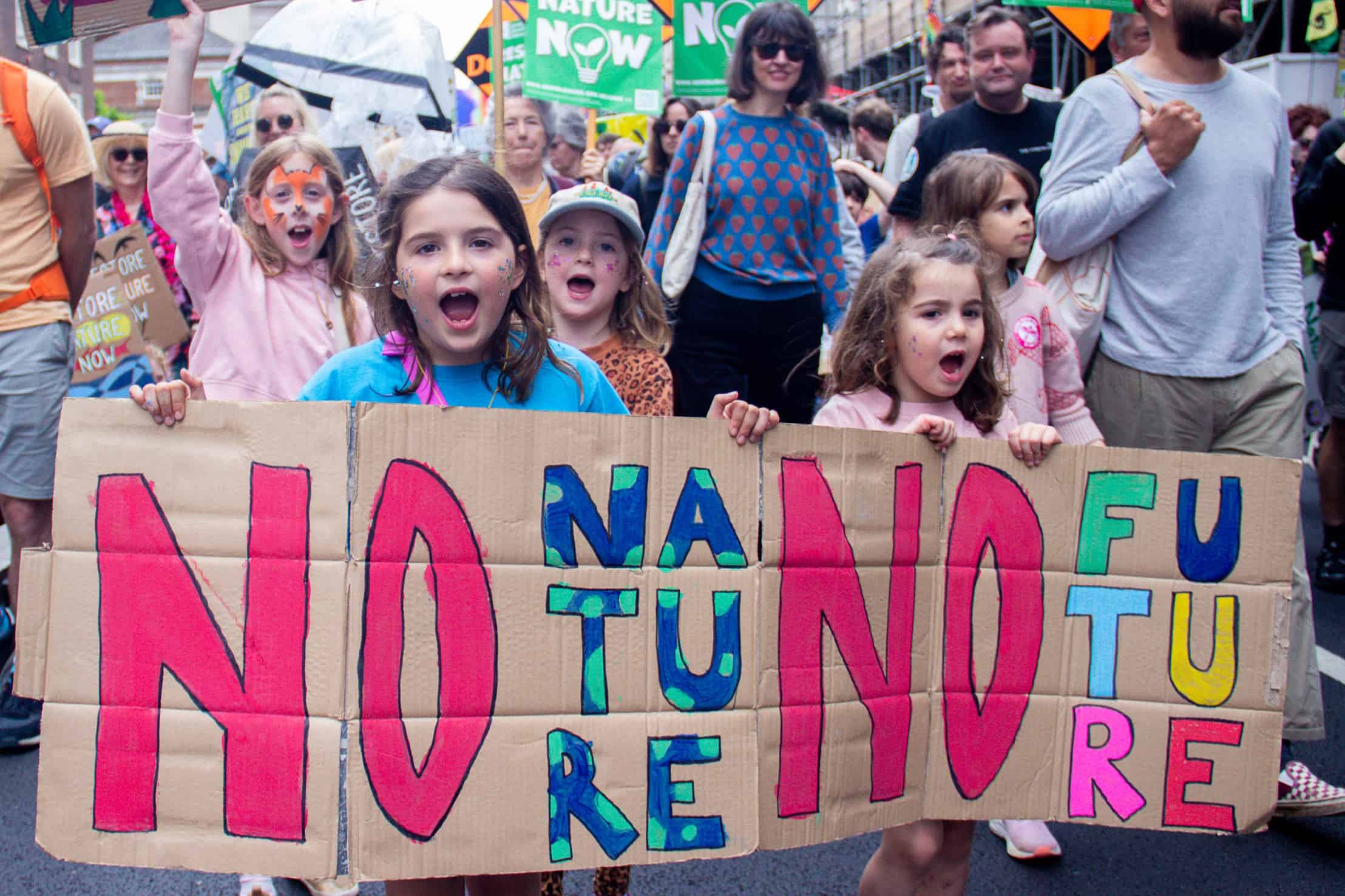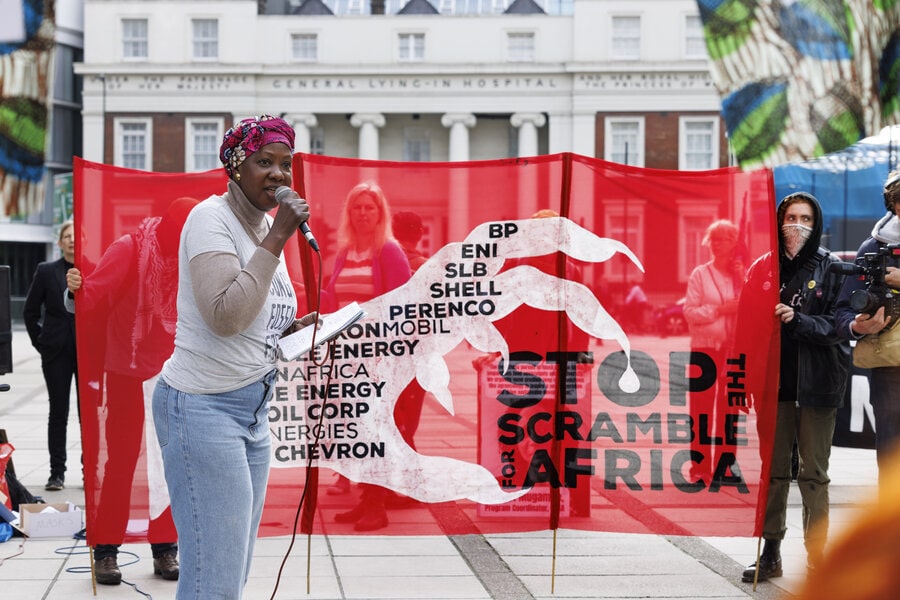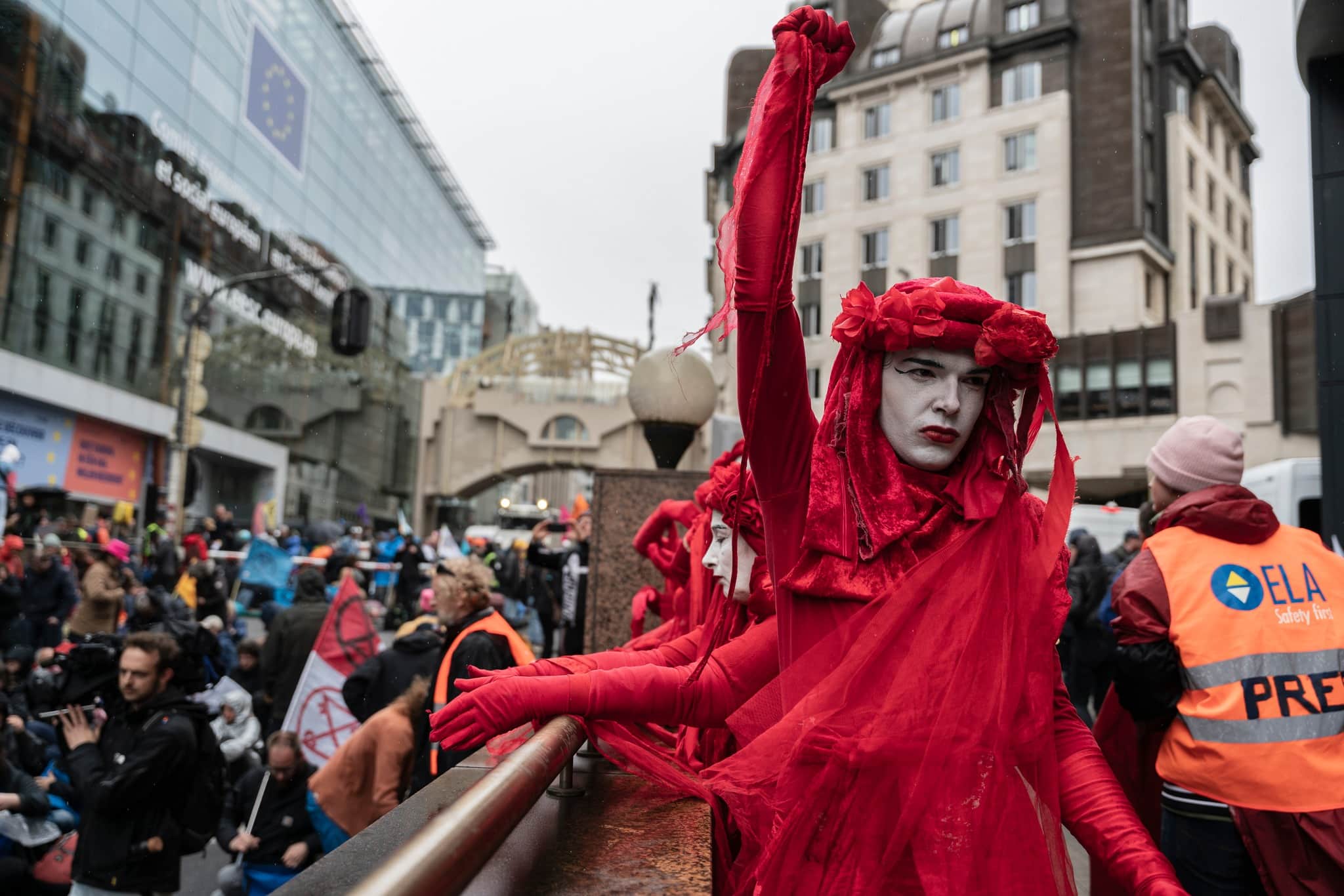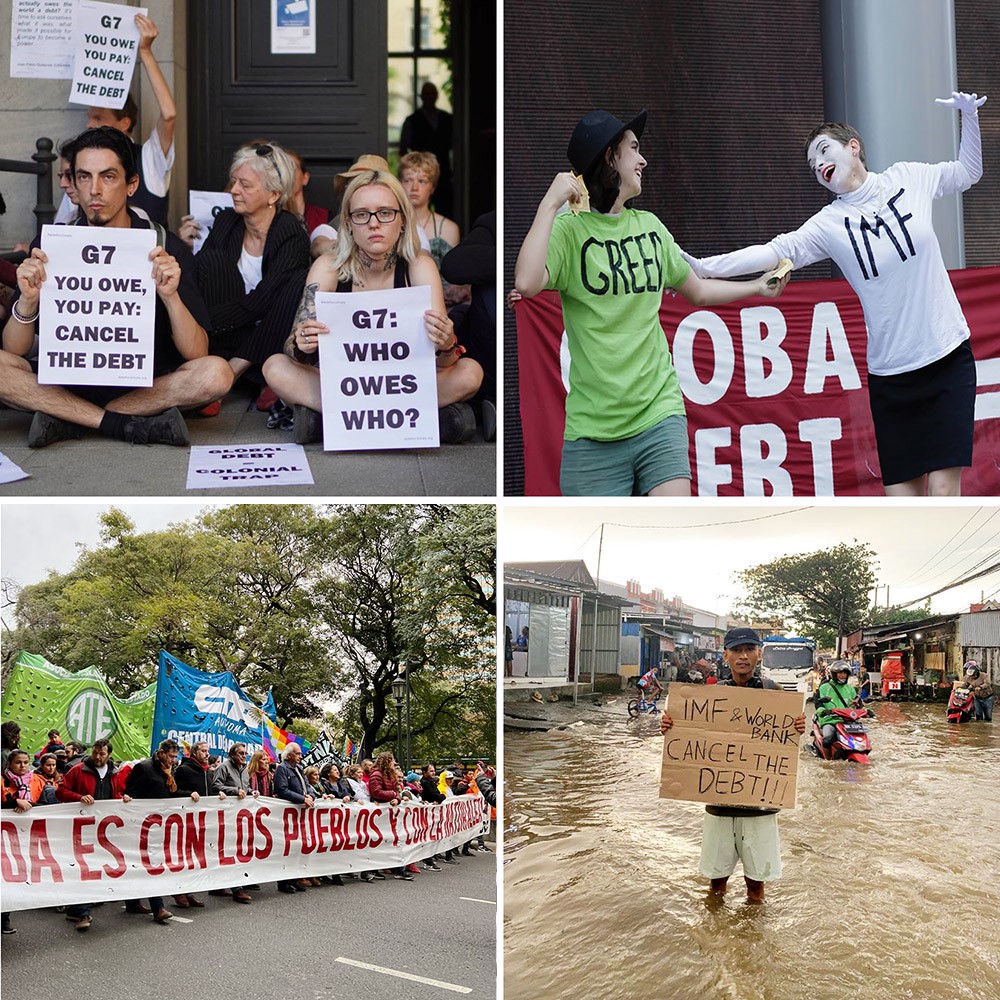
Debt 4 Climate Actions in (clockwise from top left) Germany, USA, Indonesia, Argentina.
This issue: Debt 4 Climate | Brussels Rebellion | Ecuador Strikes x Scientist Rebellion |
Introduction
Dear rebel,
A few weeks ago, high in the German mountains, the leaders of the world’s seven wealthiest democratic nations met in a luxurious castle for their annual summit.
Last year, this Group of Seven (G7) pledged to transition to clean energy and help poorer countries in the Global South do the same. Their promises came to nothing. If anything, things are getting worse.
The great injustice of the climate crisis - that those nations least to blame for global heating suffer its worst effects - continues.

Debt 4 Climate Actions in (clockwise from top left) France, UK, Puerto Rico, DRC.
A few months ago, a group of climate activists in the Global South noticed a strange financial paradox. Wealthy countries like the G7 are reluctant to pay their climate debts, yet poorer nations in the Global South are often lumbered with financial debts to those same countries.
So why not cancel all debts? That way, the money liberated could be used by those poorer nations on climate action. The Debt for Climate campaign was born, and it was launched during this year’s G7 summit with actions in 24 countries around the world.
Find out how rebels and activists from a range of movements united to amplify Debt for Climate’s brilliant central idea by heading to Action Highlights.
There you will also find reports on how Scientist Rebellion have been supporting national strikes in Ecuador, and how rebels from across Europe descended on Brussels to demand an end to the ecocidal policies of the European Union.
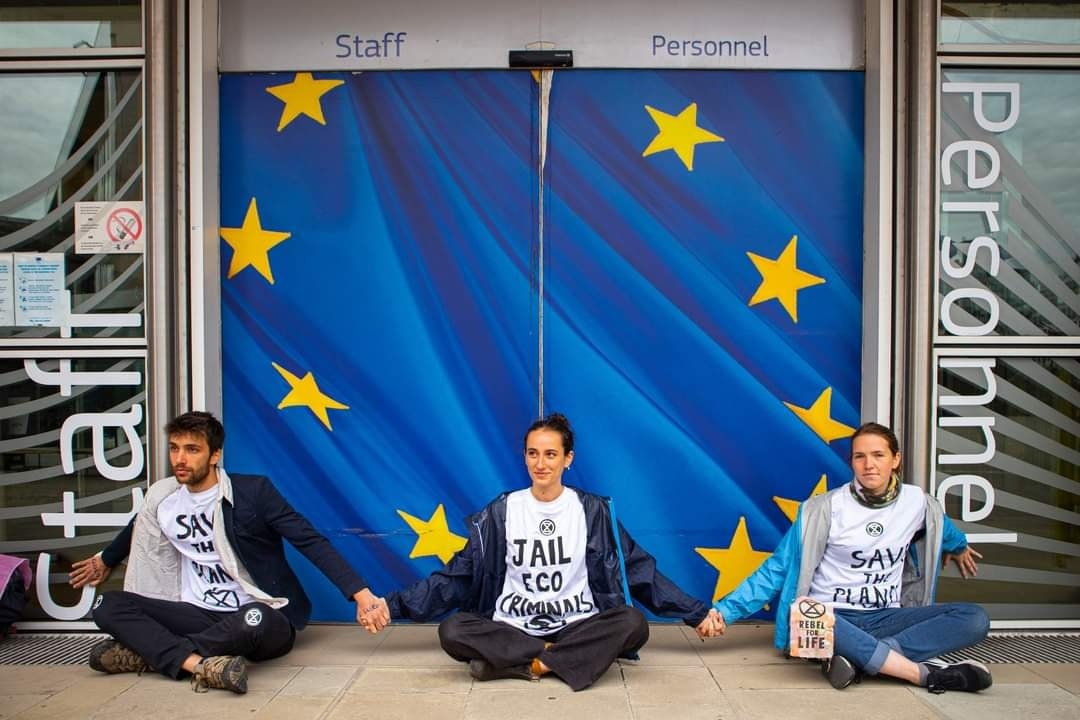
Rebels from across Europe united to blockade the EU Commission building in Brussels.
Don’t miss this month’s Humans of XR, which features a wonderful young rebel who helped stop a new airport from destroying the only remaining old growth forest in Nepal.
Finally, this issue boasts a brand new section - Splinter of the Month. With so many new eco-activist groups appearing around the world, many inspired by or involving members of our movement, we’ve decided to start profiling the most interesting ones.
If you’ve been inspired by or involved with a new group that reflects our values, but is forging a fascinating new path to climate justice, then we want to hear about it. Send your suggestions, as ever, to [email protected]
*Subscribe to the Global Newsletter and get it in your inbox every month! The Global Newsletter is brought to you by XR Global Support, a worldwide network of rebels who provide grants, training, and technology to help our movement grow. We need money for this vital work. Anything you can give is appreciated.*
Contents
- Action Highlights: Debt For Climate, Brussels Rebellion, Ecuador Strikes x Scientist Rebellion.
- Action Roundup: Sri Lanka, Cameroon, Poland, USA, Australia, UK, DRC…
- Newsletter XTRA: Tanzania, Colombia, Argentina, Canada, Mexico, India…
- Splinter of the Month: Tyre Extinguishers
- Announcements: Endangered Animals Colouring Book
- Humans of XR: Bidi, XR Youth Nepal
Action Highlights
Activists Unite to Cancel Global South Debt
26 - 28 JUNE | Worldwide
While the world’s seven wealthiest economies convened at a luxury castle in the German Alps, the activists of the Debt for Climate campaign launched a global wave of protests. Their demand - that the G7 cancel all debts of Global South countries.
Debt for Climate (D4C) was born only eight months ago in Argentina, blossoming from a broad coalition of Global South initiatives working to bring climate and social justice struggles together.
Indigenous groups, rebels, Fridays for Future activists, labour unions and other social and environmental movements around the world united to highlight how the G7 keep Global South countries in a financial stranglehold so they can exploit them.
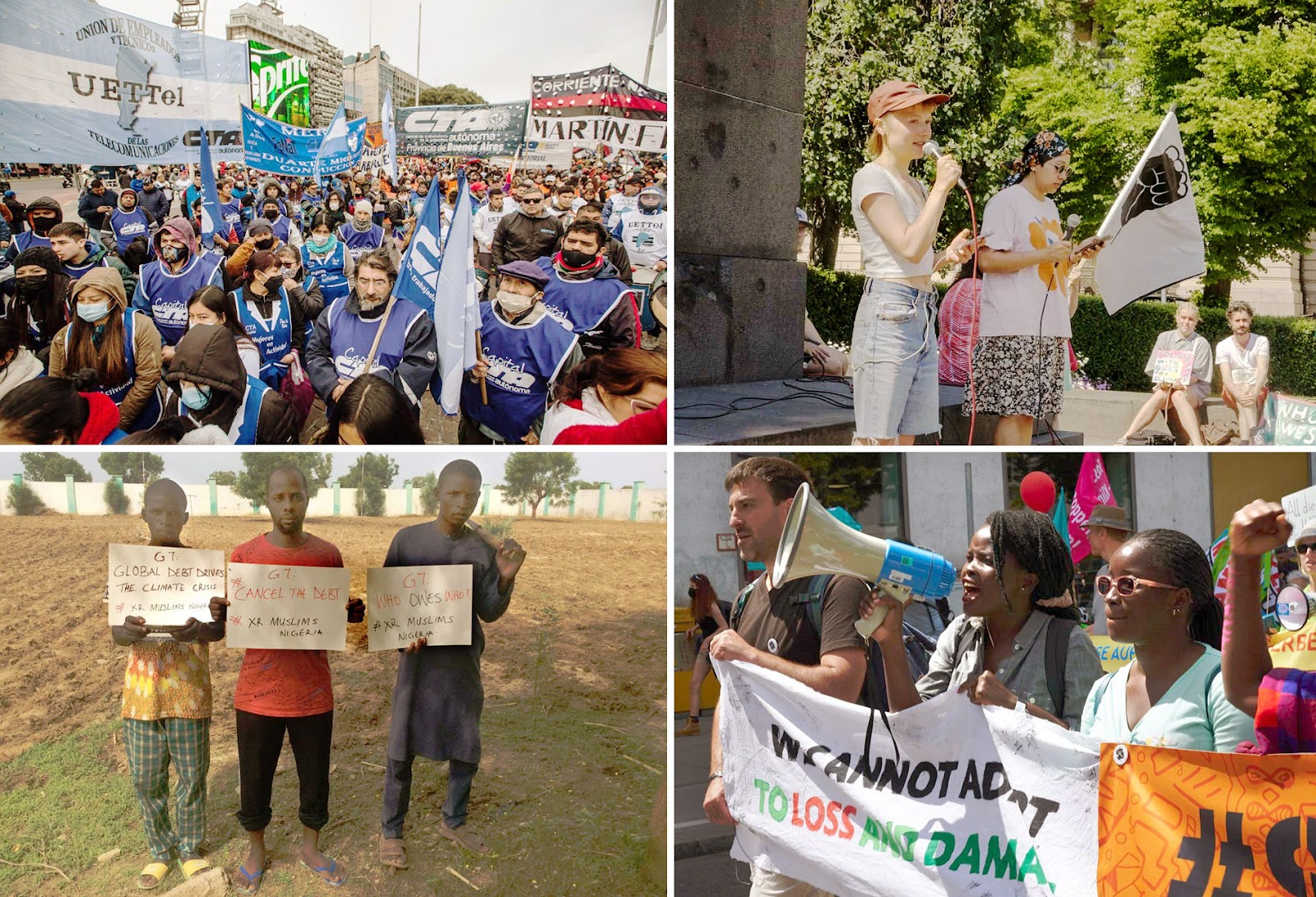
Clockwise from top left: Trade Unions march with D4C in Argentina, speeches in Finland, huge anti-G7 & D4C marches in Germany, XR Muslims in Nigeria.
At least 6,000 activists of this broad coalition marched through Munich in the run-up to the nearby summit, and thousands more trade unionists marched with D4C to Argentina’s IMF headquarters in Buenos Aires the next day.
IMF headquarters also got a visit in Paris and Washington DC, with dozens of French activists managing to glue and lock themselves both inside and outside the institution. Meanwhile in Paraguay and Panama, indigenous protesters denounced climate debts and the deforestation of their lands.
In the Democratic Republic of Congo, Nigeria, and Rwanda, rebels held signs and made videos calling on the G7 to cancel all debts, while Indonesian activists were expelled from the World Bank in Jakarta and forced to delete their footage from inside.
From disruption in major capitals, to defiance in indigenous homelands, D4C actions were a truly global phenomenon, and you can find out more about all the action in this month’s Newsletter XTRA.
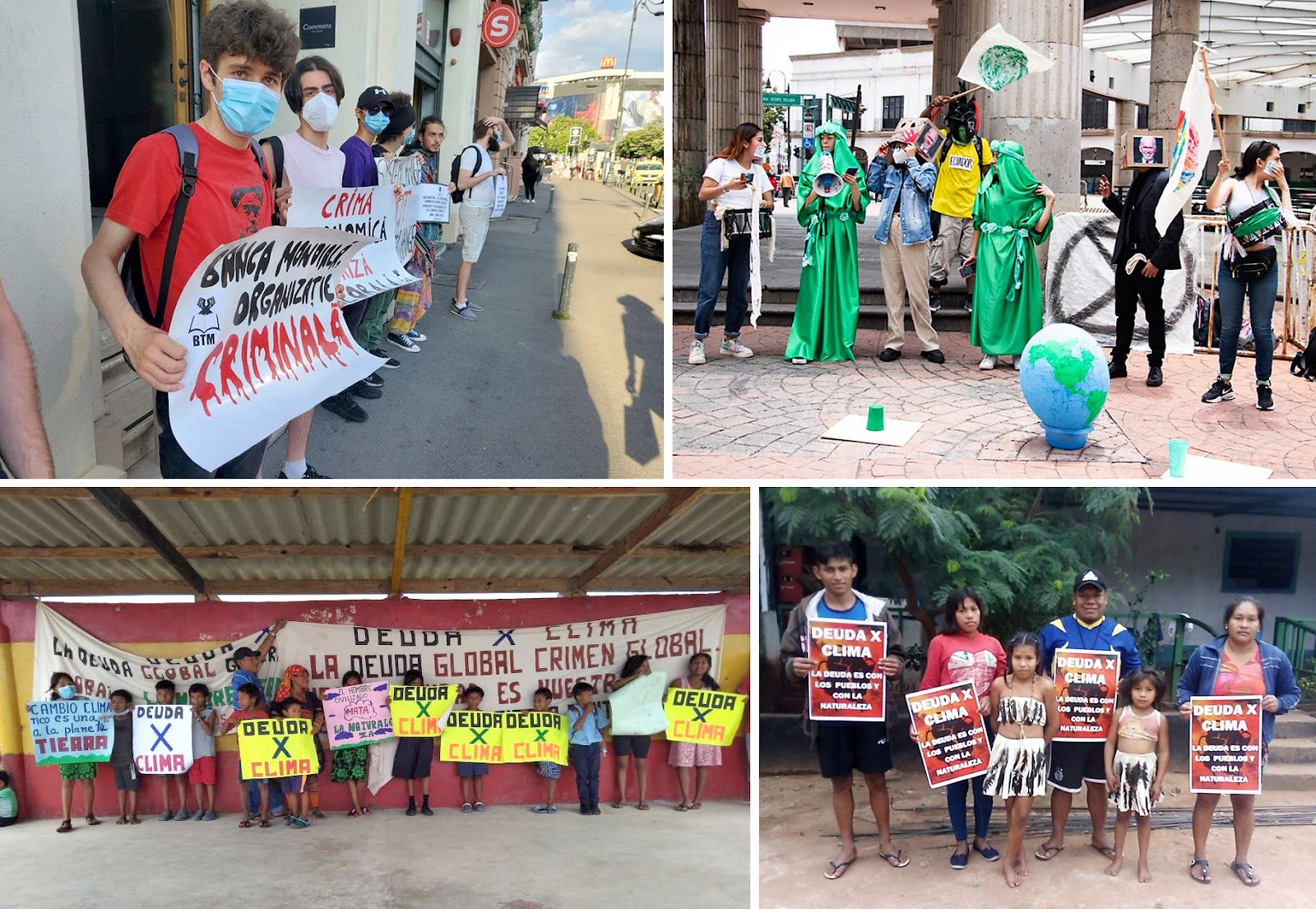
Clockwise from top left: Romanian activists outside the IMF in Bucharest, XR Toluca in Mexico break an Earth pinata, indigenous protesters in Paraguay and Panama.
The International Money Fund (IMF) and World Bank are run in a way that effectively gives the G7 nations controlling stakes. Their loans are offered to Global South countries, who are then encouraged to pay them off by allowing Global North corporations to exploit their resources.
Trillions of dollars in debt payments have flowed from the Global South to the Global North since 1980, far more than the other way around. Worse, these debts often mean Global South countries greenlight destructive fossil fuel projects so that enough foreign currency can be generated to pay them back in time.
If a country fails to meet its debt payments, harsh austerity measures are then forced on them, driving the debt and poverty downward spiral. Under such conditions, financing a transition to renewable energies is a distant dream.
With their vast historical emissions, the G7 nations are chiefly responsible for today’s climate crisis, while Global South countries face its consequences in the form of floods, droughts and rising food insecurity.
Over two days, D4C activists questioned exactly who owes who in this unjust arrangement. The speed and reach of their campaign shows that the time has come for a debt jubilee between the polluters and the punished.
D4C is on Twitter and Instagram. Email [email protected] to join the movement.
EU: Make Ecocide A Crime!
18 - 20 JUNE | Brussels, Belgium
XR groups from across Europe joined forces in front of the European Union’s headquarters for a long weekend of rebellion. Their main demand was to make ecocide a criminal offence under EU law.
The Brussels Rebellion culminated in 40 rebels blockading the European Commission building (where the EU executive meet), with some super-gluing themselves to the entrances. 20 were arrested by Belgian police but released soon after.
The EU Parliament declared a climate emergency in 2019, yet the bloc still heavily subsidises fossil fuels, intensive animal agriculture, greenwash biofuels, and trawler fishing.
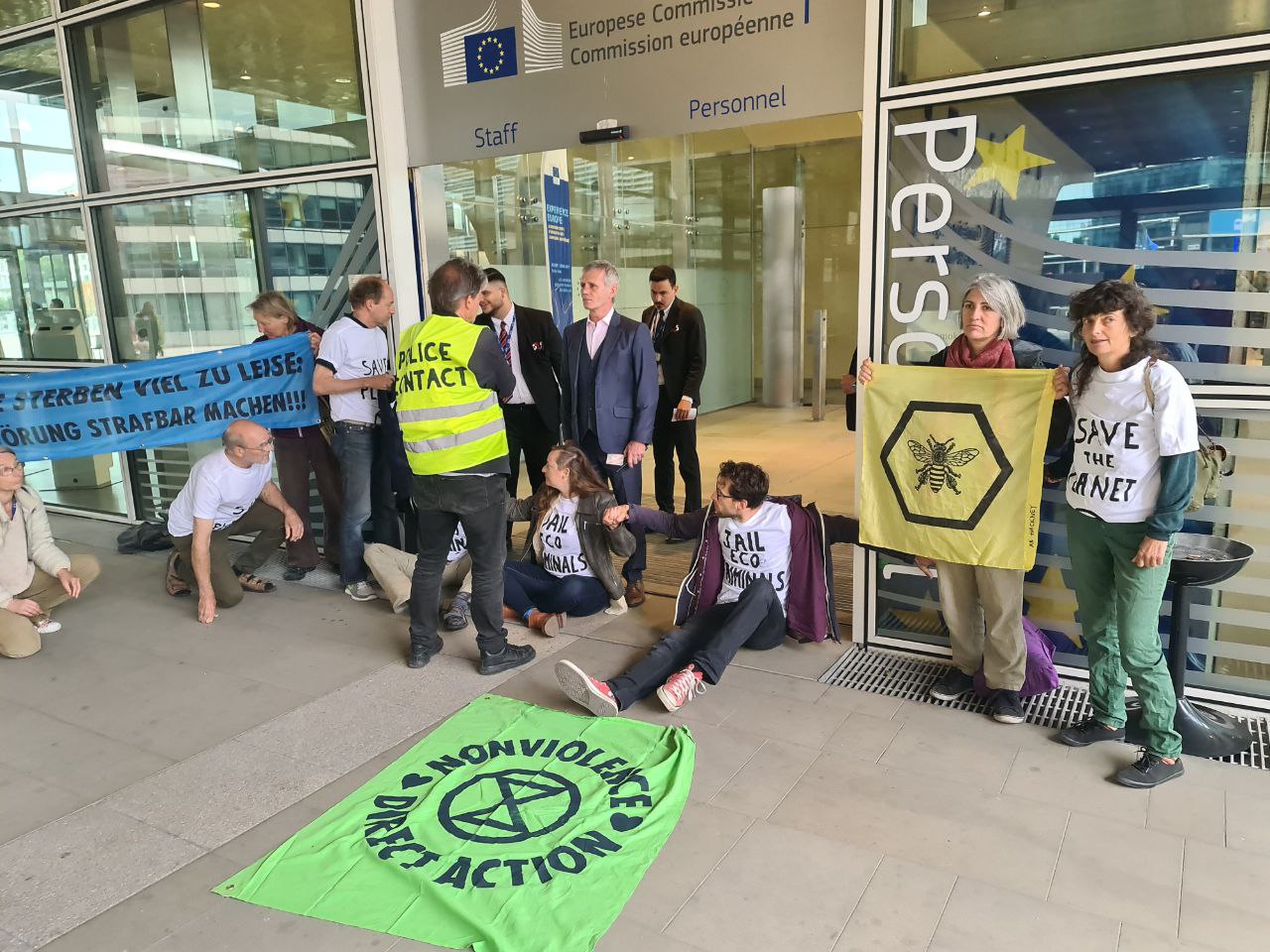
Rebels from across Europe blockade the entrances to the European Commission.
As well as demanding that EU law safeguard ecosystems from destruction, rebels demanded a shift to sustainable agriculture, the restoration of damaged ecosystems, and support for the incoming Debt for Climate campaign.
In the lead up to the blockade, rebels, supportive NGOs, and frontline activists from Argentina and Colombia took part in a weekend program of speeches, workshops, and performances.
Indigenous leaders from Brazil raised awareness about the EU’s anti-deforestation law and the need for it to include all biomes, not only the Amazon rainforest. Rebels stood with them in solidarity, which one attendee described as “incredibly moving.”

Indigenous leaders call for the expansion of the EU anti-deforestation law while rebels show what’s still at stake.
Rebels from France, Spain, Greece, Germany, the Netherlands, and more were united in Brussels. They hope that this European rebellion will inspire further collaborative rebel efforts in Belgium and beyond.
A rebel present said, “Our movement needs to understand how powerful the European Union is and their impact, especially in terms of agriculture, climate legislation, subsidies… Everything is decided there. We need to show our presence more.”
Scientists Shelter Ecuador’s National Strikers
13 - 30 JUNE | Quito, Ecuador
Members of Scientist Rebellion Ecuador spent much of June providing food, shelter, and medical assistance to protestors from Indigenous groups who shut down the capital during a national strike.
Tens of thousands of strikers resisted increases in food and fuel prices, and called for broader reforms which the repressive government eventually granted, including limitations to oil exploration and mining on indigenous lands.
Rebels witnessed disproportionate force by police that resulted in five deaths and hundreds injured. Amnesty International said the state’s reaction was creating a human rights crisis. Concerned by how many protesters were sleeping in the streets, Scientist rebels began hosting them in Quito university and their own homes.
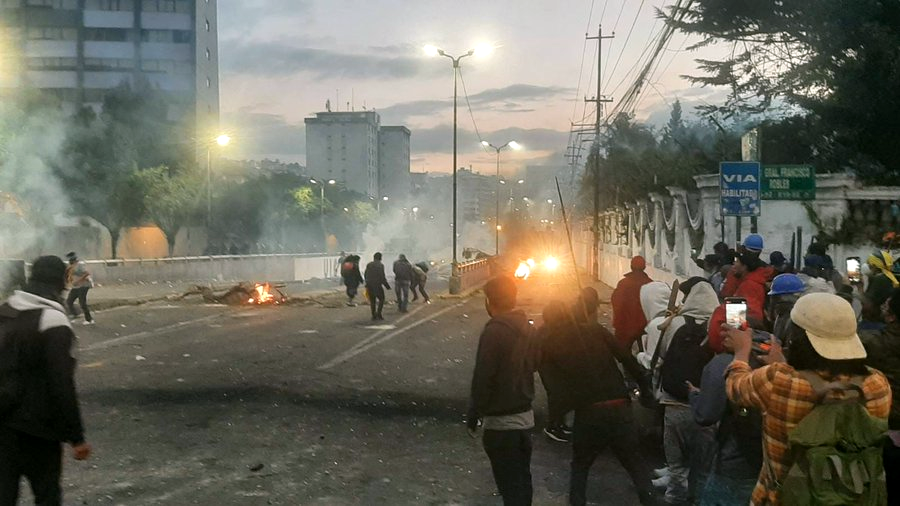
The national strike lasted nearly 3 weeks and brought the capital to a virtual standstill.
Scientist Rebellion spent over a thousand dollars on medical supplies for protesters (which at one point were nearly confiscated by police) then started purchasing helmets, gloves, and safety glasses after learning about the escalating casualties.
“Our main goal was to save lives, because we were facing a fascist dictatorship during those 18 days. They only wanted to get power by force,” said one rebel.
Days after the marching started, Ecuador’s President declared a state of emergency which criminalised public assembly and transit. Security forces also arrested the head of CONAIE, the indigenous rights organisation that called for the strike action.
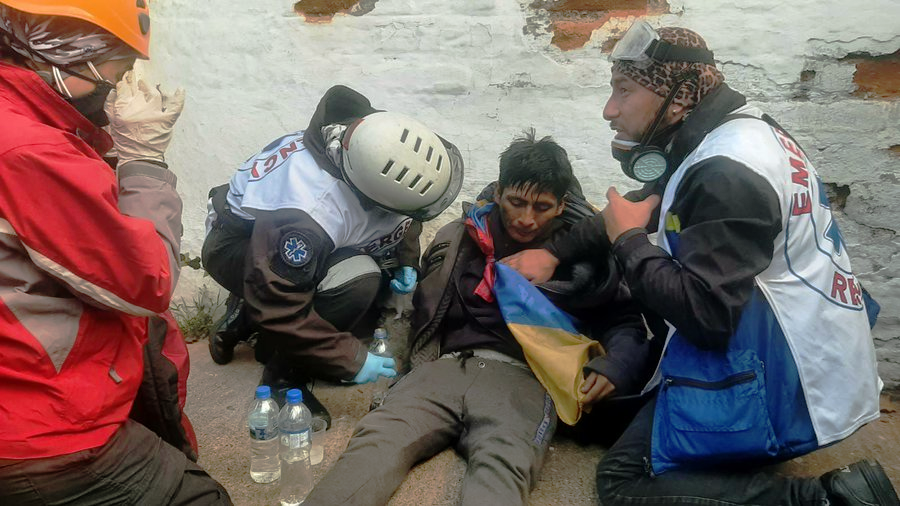
Amnesty International condemned the police response which saw five protesters killed and many hundreds more injured.
CONAIE is no stranger to national shutdowns having led a similar strike in 2019 which caused the then administration to flee Quito. This time they issued ten demands to the government which included limits to oil exploration on indigenous land, a renegotiation of debts, and increasing health and education budgets.
Initially, members of Scientist Rebellion were unsure about fully supporting the protest. Some of the demands, such as lowering the price of fuel and therefore bolstering fossil fuel subsidies, were not exactly consistent with addressing the climate crisis.

Scientist Rebellion protest outside Ecuador’s Ministry of Environment, Water and Ecological Transition in April.
However, Ecuador is an oil producing country, and as one rebel explained: “it's disgusting to the common people that we should have to pay the international price for it.”
“As scientists, we know that we need to reduce the subsidies. But, if the government doesn't provide alternatives, like sustainable public transportation, and you raise the price of fossil fuels; you won’t reduce the emissions, you will only increase the poverty of the people.”
In April, Scientist Rebellion held a protest outside the Ministry of Environment, Water and Ecological Transition to confront Ecuador’s inconsistent stance on subsidies. Rebels called out the government for greenwashing their position on climate change internationally, while planning to double the country’s oil production back home.
Action Roundup
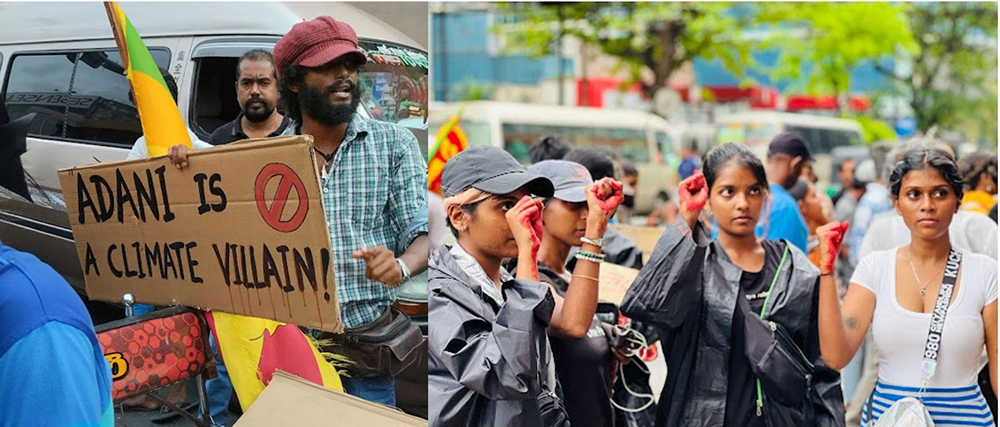
16 JUNE | Colombo, Sri Lanka Stop Adani protest is held outside the Indian High Commision.

18 JUNE | Krakow, Poland Polish rebels dressed as penguins participate in the 11th Critical Water Mass across the Vistula river, joined by an activist bear named Floe. The event draws attention to the global lack of access to drinking water and sanitation.

19 JUNE | Limbe, Cameroon Rebels celebrate Africa Liberation Week at the Favour Institute school with partners from Green and Better World. Their theme was Africa for Africans and for climate and environmental justice.

23 JUNE | San Francisco, USA Rebels dressed as ‘lamenters’ join a coalition of young activists to disrupt the California Air Resources Board (the agency in charge of keeping the state’s air clean). Eco-groups across California have condemned the agency’s plan for future climate policy, which doubles down on fossil fuel infrastructure and gambles on unproven carbon capture technology to save the day. Fossil fuel representatives were heard at the hearing, but many activists were not. Photo: Jane Berg
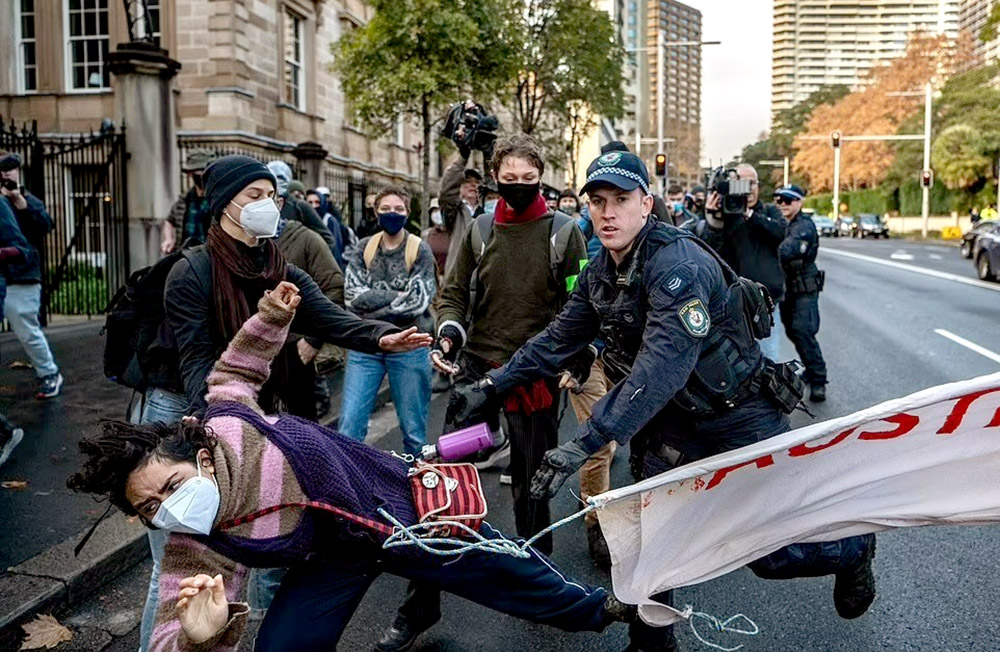
26 - 28 JUNE | Sydney, Australia A police officer knocks a Blockade Australia protester to the ground during a march in Sydney where activists were heavily outnumbered by police. Activists have barricaded streets across central Sydney.

3 JULY | Silverstone, UK Just Stop Oil activists sit on the track during the Formula 1 British Grand Prix. They were quickly arrested but made international news and won the support of two major F1 drivers.
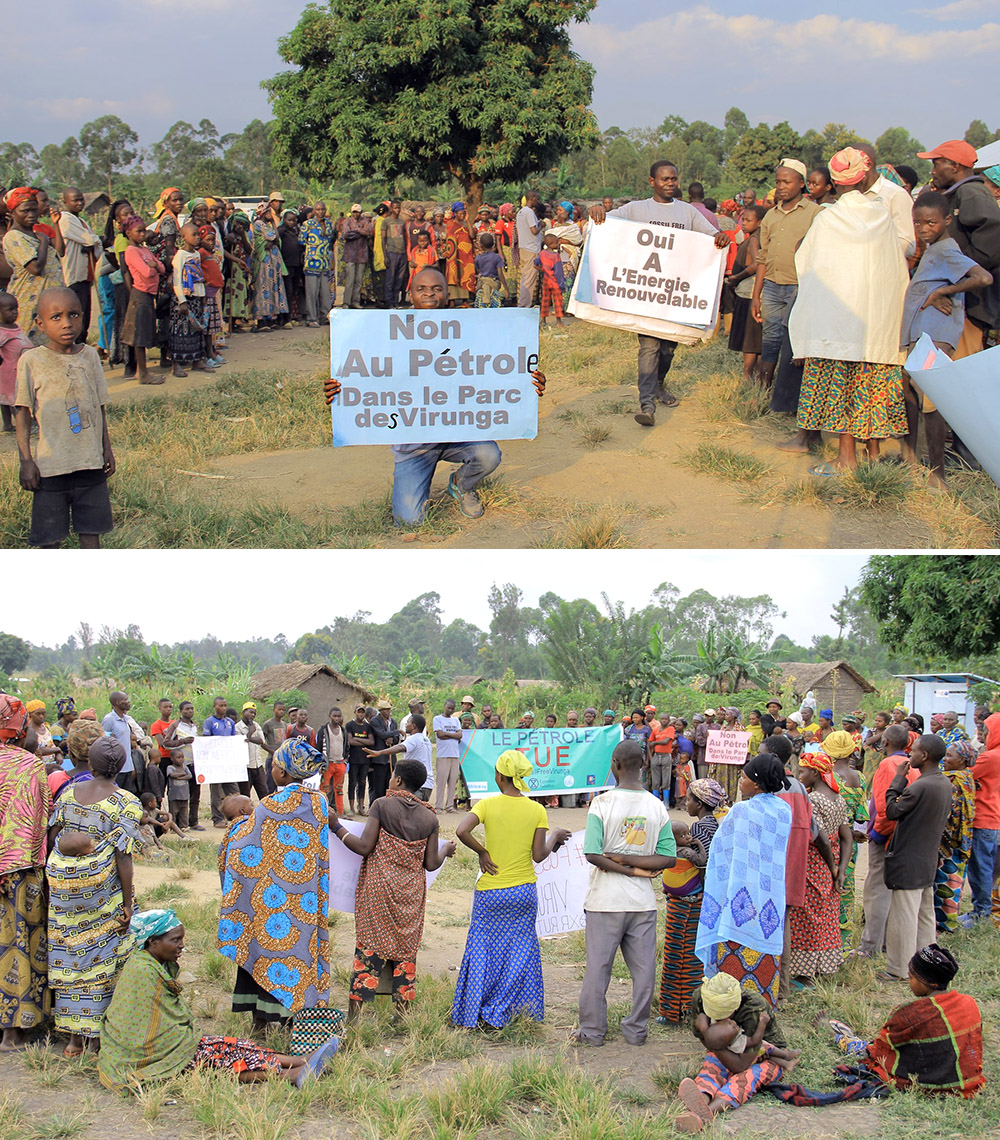
7 JULY | Rutshuru, Democratic Republic of Congo XR Rutshuru mobilises local communities around Virunga National Park to oppose the auction of 16 land blocks for oil extraction at the end of this month. Join the planned worldwide solidarity actions.
Head to Newsletter XTRA to find out about the actions we couldn’t fit in this newsletter. Like the ones in Argentina, Brazil, Canada, Mexico, India, Tanzania, Sweden and more. Newsletter XTRA: A feast for the eyes and extra fuel for the soul!
Splinter of the Month: Tyre Extinguishers

A Tyre Extinguisher gets to work in the small hours of the night.
As politicians procrastinate, our movement innovates. Since spring, a small but brave and growing group has been experimenting with a smooth new tactic to rid the world of Sports Utility Vehicles (SUVs).
The idea is simple: insert a tiny object, like a lentil, into a car tyre’s valve-cap and that tyre will slowly deflate. It takes about ten seconds to complete the process, another five to slip a leaflet on the windscreen, and about an hour for the tyre to lose all its air.
Why do this? Well, because SUVs are an enormous problem for all of us. They are the second biggest driver of the growth of global CO2 emissions; they massively increase the danger of our air and roads, with eight times the likelihood of killing children in collisions; and they starkly represent the unconscionable inequalities and excesses underpinning the ecological emergency.
Since a UK-wide take-off in March, the Tyre Extinguishers (‘TX’) have quickly grown into an international phenomenon, with actions all over Western Europe, in New Zealand, and most recently sweeping the US. Their stated aim is to “to make it impossible to own a huge polluting 4x4 in the world’s urban areas”.
TX has no formal relation to XR, and an XR UK statement helps clarify the differences of approach. But naturally there’s lots of common ground! We’ve heard several reports of XR local groups forming ‘spinoff’ TX teams, often with members looking for a way of taking direct action without much chance of arrest (so far, with well over 5,000 SUVs ‘disarmed’, there have been no arrests).
Want to get involved? Just grab some friends, a leaflet and some lentils! Want to know more? Read this excellent Tyre Extinguishers profile.
Announcements
XR Endangered Animals Colouring Book
Download Now

XR Global Support is letting rebels download this Endangered Animals Colouring Book for a limited time. Those who can give a donation in return, please do so.
XR Global Support is the international hub of our movement, keeping rebels connected, secure, and able to organise from Brazil to Indonesia, from Kenya to Colombia. But it survives only because of the generosity of its donors.
Download the book, share it with your friends and family, and donate what you can to keep our movement global.
Must Reads
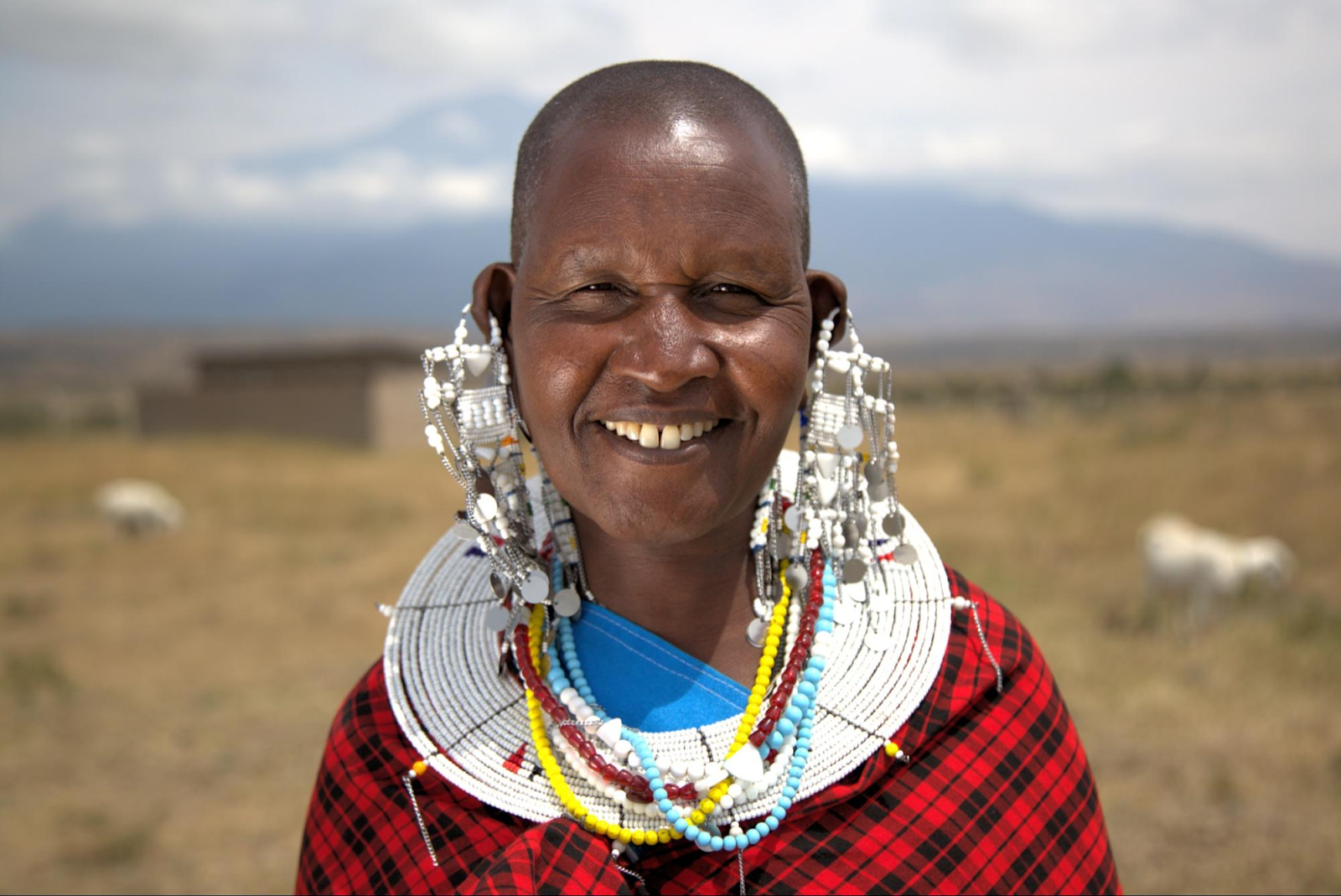
A Maasai woman in rural Tanzania, featured in the article ‘Equality is Key’ linked below. Photo: Tara Carey
As well as hosting the online edition of this glorious newsletter, the XR Global Blog also publishes in-depth articles and stories by eco-activists, academics, and authors from around the world. Here are three belters from the last month or so…
Protecting Nature: Why the Words We Use Matter
Ocean advocate and marine policy researcher Deb Rowan Wright explores why mainstream institutional 'nature speak' has potentially damaging effects.
Anxiety & Alienation: Navigating Relationships in an Age of Climate Crisis
Neil Simpson on how to navigate difficult close personal relationships in the context of the climate and ecological emergency. Features beautiful illustrations by Dustin Jacobus.
Equality is Key: Tacking Climate Change Through Women’s Rights
Former US ambassador to Afghanistan Roya Rahmani on the need to ensure women's rights to inheritance and property ownership if we are to successfully mitigate against the worst impacts of the climate crisis.
Humans of XR:
Bidi, XR Youth Nepal
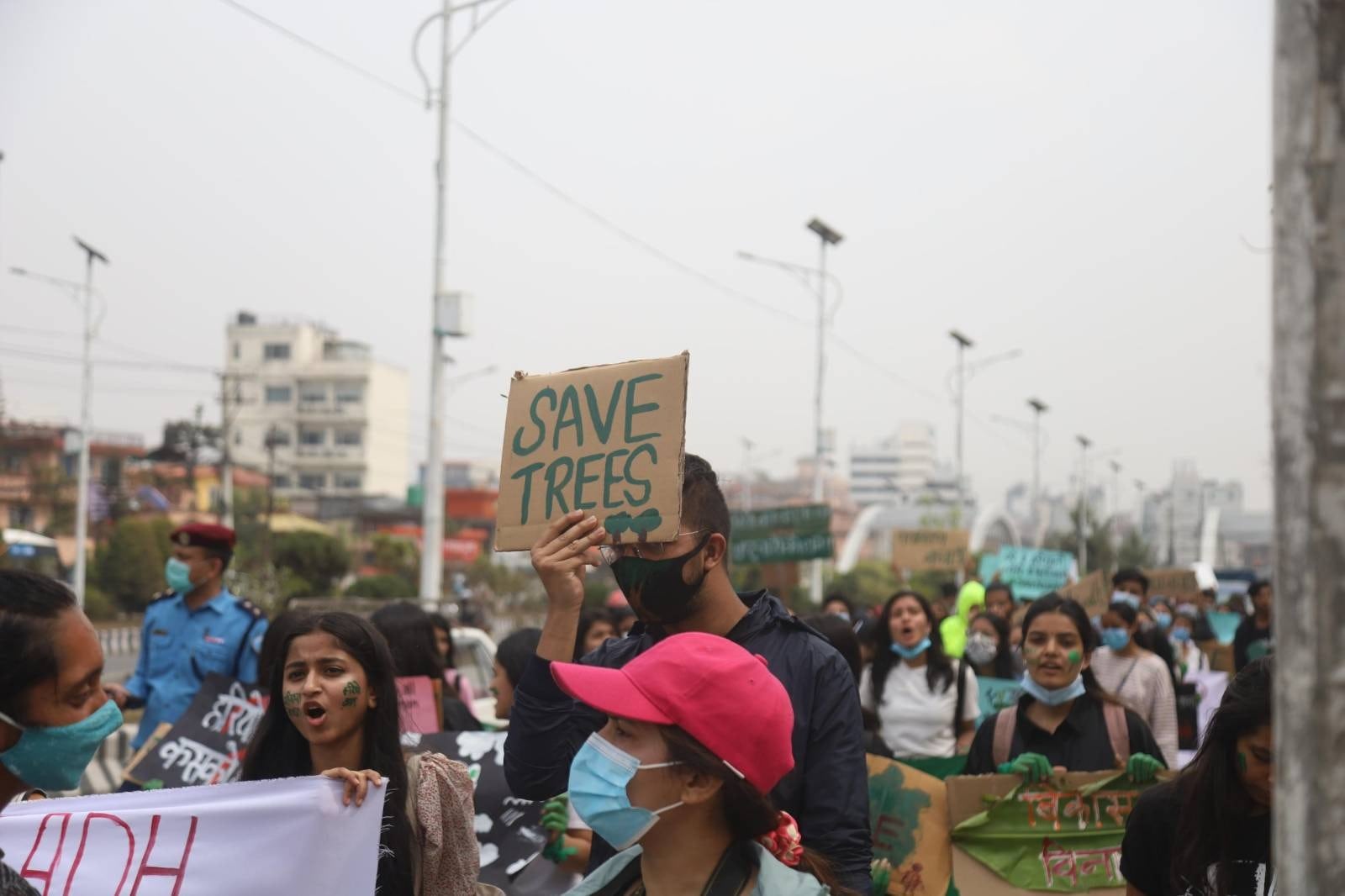
Bidi marches with a coalition of activists through Kathmandu to save Nijgadh forest.
I joined the fight to stop the Nijgadh International Airport Project in 2020, at the start of the COVID-19 pandemic. I am now part of XR Youth Nepal, but this was the first time I had participated in such a movement. In lockdown in Kathmandu, I spent a lot of time reading about the proposed airport, which the government has been trying to develop in southern Nepal for several years.
I realised I had to join the fight against these hugely damaging plans: it would mean the destruction of more than 2.4 million trees in the only remaining old growth forest in Nepal. Along with these ancient trees, many birds and plants would also be wiped out if the airport was allowed to go ahead.
In May 2022 the Supreme Court ruled that the government cannot build there and should look for a different site, but the project has not been ruled out. So, we have won one fight, for now, but the forest is not safe. However, the legal team working to defend this precious area has been brilliant; they have given me hope and energy.
The 2020 lockdowns meant I got involved with the movement online, and I joined regular webinars and social media groups. I helped build a coalition of climate and environmental groups to create ‘Rethink Nijgadh’, acting as a coordinator. I then joined up with the research and documentation team supporting the litigator in our case.
I also contacted many journalists, though it has been difficult to get them to pay attention to our campaign. The elites and media insist that all economic development is good, so anyone opposing it is getting in the way of progress and prosperity. Since Nepal is so small, many people think it doesn’t matter what we do here – our impact on the climate will be tiny overall, so we don’t need to worry.
I have certainly experienced periods of burnout, but I am committed to the fight to protect the climate and living world. Most people – including me – have to work and study, so we need to use the time and energy we have most effectively. Activism is not a trend; it is ongoing, and there is a long way to go. It is so important to find like-minded people in this struggle, and to keep supporting one another.
If you know (or are) a rebel somewhere in the world with a story to tell, get in touch at [email protected]
Thank you

Children in Idjwi, Democratic Republic of Congo, have the right idea.
Thank you for reading, rebel. If you have any questions or feedback, we want to hear from you. Get in touch at [email protected].
Get involved in XR wherever you are! Check out our global website, learn more about our movement, and connect with rebels in your local area.
XR Global Support needs money to continue its crucial work. Anything you can give is appreciated.
